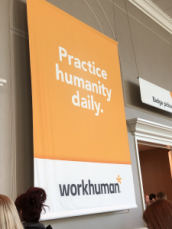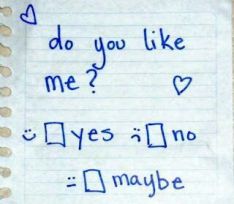Disclosure: I am compensated for attending Workhuman and sharing my thoughts and commentary on the conference. No one at Workhuman directs what I am supposed to write or how I cover the conference – I am simply invited to share my impressions of the experience.
Last week, I had the opportunity to attend my FIFTH Workhuman conference. The conference was started by Globoforce to highlight not only its recognition platform, but because the company believed there was a better way to work. The first event was, shall we say, “intimate” – not a lot of people, but a lot of buy-in around the idea of treating employees like human beings and acknowledging that they bring more than their productivity to the workplace.
The buy-in was so strong that the conference has grown 600% since that first gathering, and Globoforce has since changed its name to Workhuman, outwardly reflecting the commitment to an idea that has been internally held all along; and the conferences shall henceforth be known as Workhuman Live.
Enough about the backstory. How was the conference, Mary?!
In short, the conference was really good. Through the years, the event has experienced some growing pains, particularly in the area of registration and picking up your badge. The image that comes to mind is locusts on a field of wheat with a couple of people waving their arms around to try and calm the masses…but that might be a bit dramatic. What really happens is everyone arrives about the same time, and when you have pre-conference sessions that people what to get to in a short period of time, it can get crowded. Add to that an unfortunate technical issue with a badge printer, and you get some long lines. But as always, the conference staff handled it well – apologies, smiles, and handing out water to the people waiting in line.
It’s hard to sustain a unique event experience year after year. At some point, conferences get so big that you have to scale your logistics in proven (read: “traditional”) ways – keynotes, breakouts, etc. Workhuman continues to set itself apart by limiting the “expo hall” (which they call Workhuman Central) to a few product demo areas, one or two partner booths, and a focus on connection. The Gratitude Bar (where attendees can use the Workhuman platform to recognize others) took center stage, and for every recognition shared, Workhuman contributed to three local charities. The Studio Sessions offered smaller, conversational style discussions on topics, and everywhere, there were places for attendees to sit, rest, connect, recharge.

Yeah, yeah…what about George Clooney?
Yes, Workhuman does a very good job of booking speakers. And many of you may wonder, “What the hell does Gary Hamel/George Clooney/Kat Cole/Geena Davis/Brené Brown/Viola Davis/etc. have to do with working human?!” (Okay, maybe Gary Hamel, Kat Cole and Brené Brown make sense. And they were phenomenal. And I got to meet Kat Cole, so there.) Aside from the obvious star power that these names bring to the conference, I am always impressed at how Workhuman identifies speakers who live the values the event espouses. I was struck by the humility and humanitarian focus of each of the speakers. Yes…George Clooney is impossibly charming and every inch the movie star…and he uses his platform to do good things. Humanitarian efforts are personal to both George and Amal Clooney – they put in the time and work. It’s not just a cause they donate money to. Geena Davis has established a foundation called the Geena Davis Institute on Gender in Media, which engages film and television creators to dramatically increase the percentages of female characters — and reduce gender stereotyping — in media made for children 11 and under. Viola Davis speaks TRUTH – she uses her success and visibility to challenge all of us (not just Hollywood) to do better in how we think about and act on diversity and inclusion. None of these speakers were scripted – these are issues they speak about with passion and a real belief that we have an obligation to use our abilities to help others.
Any takeaways? Or are you just going to keep describing the conference?
That last piece – the obligation to use our abilities to help others – is my chief takeaway from Workhuman 2019.
Each of us has an obligation to use whatever influence/power/gifts/resources/whatever to make the world a better place – for all humans. George Clooney (I know, I know…but he was really good!) shared the values his family instilled in him early on, the importance of helping others who need it. He spoke about the role of luck in his life and acknowledged the help he’s had along the way. Most of all, he expressed his belief that those who have need to help those who have not.
Perhaps the quote that has stuck with me the most is this: “You are never on the wrong side of history when your aim is progress.” Progress is helping others. Progress is a hand up, not a hand out. Progress is teaching empathy. Progress is vulnerability and learning from mistakes. Progress is making a workplace that is welcoming and safe for all people. Progress is representation – in investing, in community, in movies, in the boardroom, in life. Progress is using your platform to advance society forward, not move it backwards.
We all may define progress differently, but this is the definition of progress I want to see and promote.
I want to be on the right side of history.
Workhuman Live (the new conference name) will take place in Denver in 2020.


